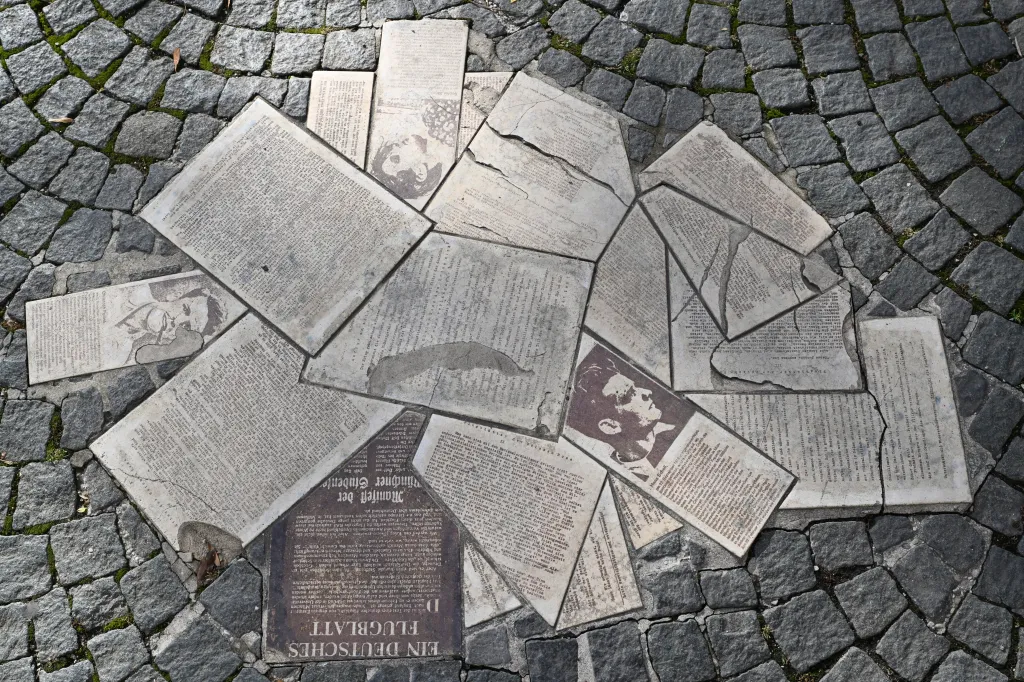
These weeks, in synagogues throughout the world, the words of Isaiah will be intoned: Though your sins be crimson, they can be white as snow. The focus of the Jewish High Holy Days is to atone for our sins, to earn our forgiveness from those people to whom we have done harm. Just as in the Christian book of Revelation, the motif of whiteness as cleanliness, as purity, is prominent. To successfully scrub away the stain of sins, to find spiritual purity, is to turn white.
The color white has long been associated with purity. In biblical times, white was hardly a metaphor. The conclusion of Isaiah’s verse was: If your sins be crimson, they can be like wool. The physical reality of a blood stain on a white garment — dyes did not proliferate in biblical times — was a metaphor based on a most tangible reality.
Today, the association of white with purity is far more pernicious. In modern times, the purity of the color white is co-opted by white Christian nationalism, an American movement deeply rooted in today’s Republican Party, ensconced in the policies emerging from the White House.
From the outset, we must call out white Christian nationalism for what it is: a perversion of Christianity and a desecration of American democracy. In a simple sentence, white Christian nationalism is a political ideology that merges the imperial tendencies of both Christianity and America to assert that the United States was founded as a Christian nation by white Europeans and should therefore privilege white Christians while marginalizing non-Christians, minorities and women.
White Christian nationalism is misogynistic: It seeks to control women, relegating them to the societal role of reproduction and, then, of course, only for producing more white babies than minority children. White Christian nationalism is racist: It seeks to dismantle any attempt to create equity and inclusion. White Christian nationalism is anti-immigrant, antisemitic and Islamophobic: It is deeply connected to the “Great Replacement” conspiracy theory, which falsely claims Jews and minorities are united in an attempt to destroy Western (read: white) society.
As faith leaders, three of us Christians steeped in our traditions, we must clearly state that white Christian nationalism has co-opted Christianity in an attempt to sanctify an ungodly movement. In rejecting love for all and replacing it with hate for many, white Christian nationalism is, literally, anti-Christ. The Gospel of John explains: “You can’t love God and hate people.” Surely, Jesus’ disciples wouldn’t condone white Christian nationalist Laura Loomer calling a member of the House of Representatives a “ghetto Black (expletive).” These Christian nationalists have hijacked Christianity and are writing their own version of the Bible to justify their hate and white supremacy.
And white Christian nationalism is in charge of the political party that is currently in charge of America. House Speaker Mike Johnson hangs the flag of a Christian supremacist group, the New Apostolic Reformation, right outside his office; U.S. Supreme Court Justice Samuel Alito flies it outside his home. U.S. Rep. Marjorie Taylor Greene, well known for her antisemitism, explains this commitment clearly: “We need to be the party of nationalism. I am a Christian, and I say it proudly, we should be Christian nationalists.”
It is not a coincidence that Greene spoke these words in 2022 at an event hosted by Turning Point USA. We know that the founder of Turning Point was murdered recently, in a deplorable act of political violence. Sadly, the murder of a politically divisive figure has made clear why his base so admires his message: Not because of any commitment to the freedom of speech, but because of unwavering commitment to white Christian supremacy.
George J. Wittenstein describes a situation seemingly similar to where we fear America is headed: “The government — or rather, the party — controlled everything: the news media, arms, police, the armed forces, the judiciary system, communications, travel, all levels of education from kindergarten to universities, all cultural and religious institutions.” The party Wittenstein describes was also one founded on white Christian supremacy: the Nazi party in Germany.
Wittenstein, along with a small group of others, rose up in defiance of the supremacists of his time. In 1942, this small cadre of committed, multicultural activists called for widespread opposition to the regime. The name they chose for themselves, born of an image of purity, was The White Rose.
We need The White Rose in America today, a multicultural, interfaith cadre of activists committed to combating white Christian nationalism and all that it stands for. We need an ever-expanding community of courageous individuals willing to speak out against injustice; we need leadership to remind our country that America was not founded as a Christian nation, but as a haven promising life, liberty and the pursuit of happiness to all.
The White Rose was chosen as a name for resisting the Nazis because of the color’s association with purity. If that association can be traced back to the prophet Isaiah, then we would benefit to learn the entirety of the lesson that precedes this metaphorical association. You see, the sins for which Isaiah wants the people to atone are the same we see today, in some instances, the very sins being committed in the name of white Christian nationalism. And so we end our column with a plea to heed Isaiah’s warning, to build the community of resistance we need in America today. In order to atone for the sins of our time, to come together in the name of reason, this is what the prophet charges us all:
“Cease to do evil, learn to do good, seek out justice. Relieve the oppressed; defend, take up the plea of those most vulnerable. Come now, and let us reason together: though your sins be as crimson, they can be white as snow.”
Chicago faith leaders Rabbi Seth Limmer, the Rev. Otis Moss III, the Rev. Ciera Bates-Chamberlain and the Rev. Michael Pfleger joined the Tribune’s opinion section in summer 2022 for a series of columns on potential solutions to Chicago’s chronic gun violence problem. The column continues on an occasional basis.



